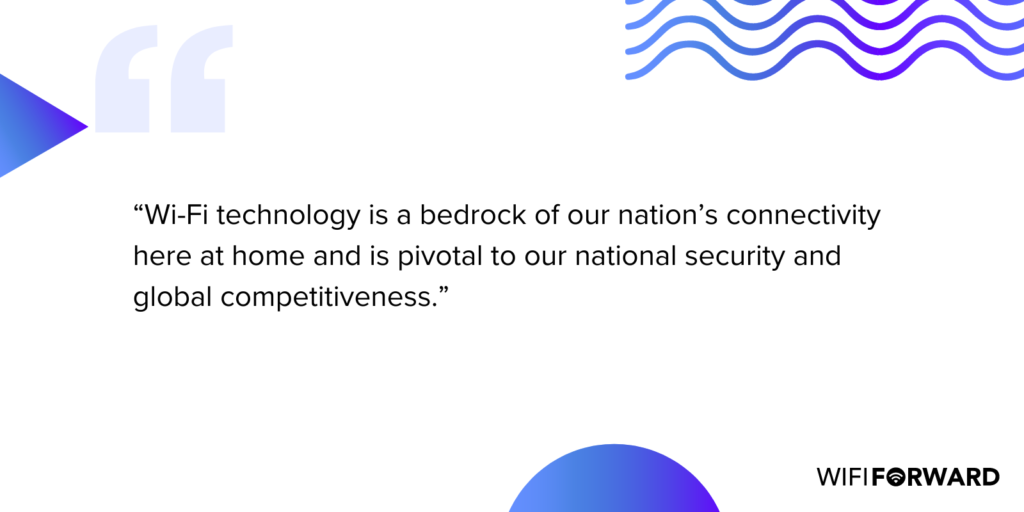Commercial interests with their eyes on federal spectrum bands need to support dynamic spectrum sharing and coexistence with existing federal users, according to a recent U.S. Senate Committee on Commerce, Science, & Transportation’s hearing on Spectrum and National Security. Witnesses said the U.S. needs to both preserve spectrum for federal systems, as well as allow commercial users to expand into federal bands using existing and new techniques for sharing federal spectrum, because doing so builds U.S. national security and economic strength.
WifiForward Executive Director Mary Brown championed the importance of unlicensed spectrum in driving innovation and maintaining America’s technological prowess. She stressed the necessity of shared spectrum bands to showcase American innovation on a global scale.
“Wi-Fi technology is a bedrock of our nation’s connectivity here at home and is pivotal to our national security and global competitiveness,” Brown testified.
 Both senators and expert witnesses at the hearing highlighted the pivotal role of unlicensed spectrum in ensuring equitable access to connectivity, especially in underserved rural communities. Sen. Ted Cruz, ranking member of the committee, praised Wi-Fi as a quintessential American success story in his opening remarks, noting its “low barriers to entry and freedom from regulation.”
Both senators and expert witnesses at the hearing highlighted the pivotal role of unlicensed spectrum in ensuring equitable access to connectivity, especially in underserved rural communities. Sen. Ted Cruz, ranking member of the committee, praised Wi-Fi as a quintessential American success story in his opening remarks, noting its “low barriers to entry and freedom from regulation.”
Brown also emphasized the pivotal role of Wi-Fi technology in the fight for national security, global competitiveness, and in combating foreign interests – particularly citing China’s attempted spectrum grab for exclusive licensed mobile use in the upper 6 GHz band at last year’s World Radiocommunication Conference (WRC).
“Thanks to U.S. leadership at the conference, we ended up with a resolution whereby the countries of the world could decide for themselves, based on their own strategic objectives, what they wanted to do in the upper 6 GHz band. That means U.S. industry can continue to go country by country to try to influence national regulation and come up with a harmonized approach to the 6 GHz band,” Brown explained.
While some would argue that the U.S. should emulate China’s approach to spectrum allocations, Dr. Monisha Ghosh testified, “I think we should look at our spectrum needs, not another country’s. China is four times our population and if they have more spectrum, it doesn’t mean that we need more spectrum. We need to look at what our defense needs are, what our consumer needs are, and what our science needs are.”
The hearing was a wake-up call highlighting the critical need to expand unlicensed spectrum to encourage innovation, strengthen national security, and foster inclusivity in the digital landscape. As policymakers forge ahead, prioritizing the expansion of unlicensed spectrum is becoming the backbone in forming a resilient and accessible wireless ecosystem for all Americans.
